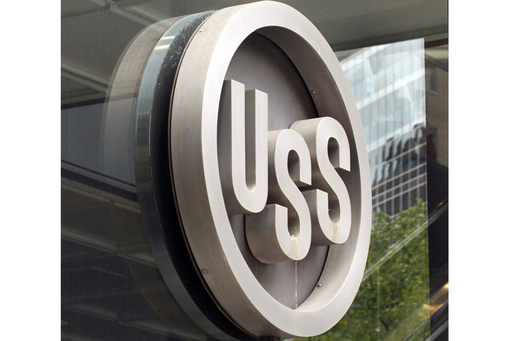
A significant U.S. government committee was unable to reach an agreement on the potential national security implications of a nearly $15 billion proposed acquisition of U.S. Steel by Japan’s Nippon Steel. This indecision has left President Joe Biden, who has voiced his opposition to the deal, to make the final call.
The committee, known as the Committee on Foreign Investment in the United States (CFIUS), presented its long-awaited findings to Biden, who formally expressed his disapproval of the acquisition back in March. He has a 15-day window to make a conclusive decision, according to the White House. A U.S. official, who spoke on the condition of anonymity to reveal details of the private report, mentioned that several federal agencies involved in the discussion were unconvinced that permitting a Japanese company to take over an American steel producer would pose significant national security threats.
The deadline for the committee to either approve the deal, recommend a veto to Biden, or extend the review period was set for Monday. Both President Biden and former President Donald Trump have shown support for labor unions linked to U.S. Steel, pledging to oppose the acquisition over worries surrounding foreign ownership of this key American company. The concern exists that declining to proceed with the deal might forfeit potential investments from Nippon Steel that could modernize production facilities in the U.S.
If finalized, the $14.9 billion cash deal would allow U.S. Steel to retain its name and its headquarters in Pittsburgh, where it was established in 1901 by industrial giants J.P. Morgan and Andrew Carnegie. The deal would designate U.S. Steel as a subsidiary of Nippon Steel, positioning the combined entity as one of the top three steel producers worldwide, as reported by 2023 statistics from the World Steel Association.
Biden, who is supported by the United Steelworkers union, stated earlier in the year the importance of keeping U.S. Steel as an American-run steel company. Trump has echoed dissent against the acquisition, declaring this month on his social media that he would do everything possible to prevent the sale from going through, proposing instead to rejuvenate U.S. Steel’s declining state with new tax incentives and tariffs.
The steelworkers union is concerned about the possibility that Nippon Steel won’t sustain jobs at unionized facilities, fulfill benefits agreed upon in collective bargaining, or shield U.S. steel production from cheap foreign imports. “We believe that President Biden has the responsibility to consider how to best move forward, ensuring that U.S. Steel remains a domestically owned and operated entity,” stated David McCall, president of the steelworkers union.
Both U.S. Steel and Nippon Steel have engaged in public relations efforts to win over skeptics. U.S. Steel reiterated that the merger would ensure the long-term prosperity of the company and its stakeholders. Likewise, Nippon Steel communicated that it has actively collaborated with CFIUS to address any national security issues that have surfaced during the review process. In its statement, Nippon Steel called upon Biden to appreciate what it has done to ensure U.S. Steel’s growth, safeguard American jobs, and bolster the steel sector, thereby enhancing national security.
Support for the deal among conservatives seems to be rising, as Nippon Steel gains favor from certain members of the steelworkers union and local officials in proximity to its operational facilities. Many proponents argue that Nippon Steel is in a stronger financial position than competitors like Cleveland-Cliffs, allowing it to make necessary investments to modernize the aging infrastructure of U.S. Steel.
Nippon Steel has made a commitment to invest $2.7 billion into facilities represented by the United Steelworkers, including U.S. Steel’s blast furnaces, and has assured that it would not import steel slabs that may compete with domestic products. Additionally, it vowed to protect U.S. Steel in matters related to trade while committing not to lay off workers or close plants during the life of the existing labor agreement. This month, Nippon Steel also offered closure bonuses of $5,000 to U.S. Steel employees, totaling nearly $100 million.
Nippon Steel argues that it is well-positioned to assist American steel against competitive pressures from Chinese dominance in the industry. The proposed acquisition aligns with a broader wave of political interest aiming to strengthen America’s manufacturing landscape, particularly as Pennsylvania remains a key battleground in presidential campaigns, with ongoing protective tariffs bolstering local steel production.
CFIUS, chaired by Treasury Secretary Janet Yellen, is responsible for evaluating business transactions between U.S. firms and foreign investors and holds the power to block agreements or mandate modifications to safeguard national security. The committee’s powers were expanded significantly by the 2018 Foreign Investment Risk Review Modernization Act (FIRRMA). Furthermore, Biden has recently issued an executive order to broaden the review factors for the committee to consider, including the impact on U.S. supply chains and the risks posed to personal data.
Nippon Steel operates factories across the U.S., Mexico, China, and Southeast Asia, providing steel to leading automotive manufacturers such as Toyota and producing materials for various infrastructure projects, including rail systems and buildings.

